Below are 5 highlights of online fraud in Vietnam's cyberspace in the 5th week of 2024, from January 29 to February 4:
Camera scanning trick on fake public service software
A resident of Hoan Kiem District (Hanoi) has just been scammed out of 3 billion VND by a scammer impersonating an officer of Hang Bong Ward, Hoan Kiem District, requesting to integrate a remote identification code. After downloading, logging in, and scanning the face recognition camera on the fake public service software as requested by the scammer, this resident lost control of his securities account, had it sold, and all the money was transferred to another account.
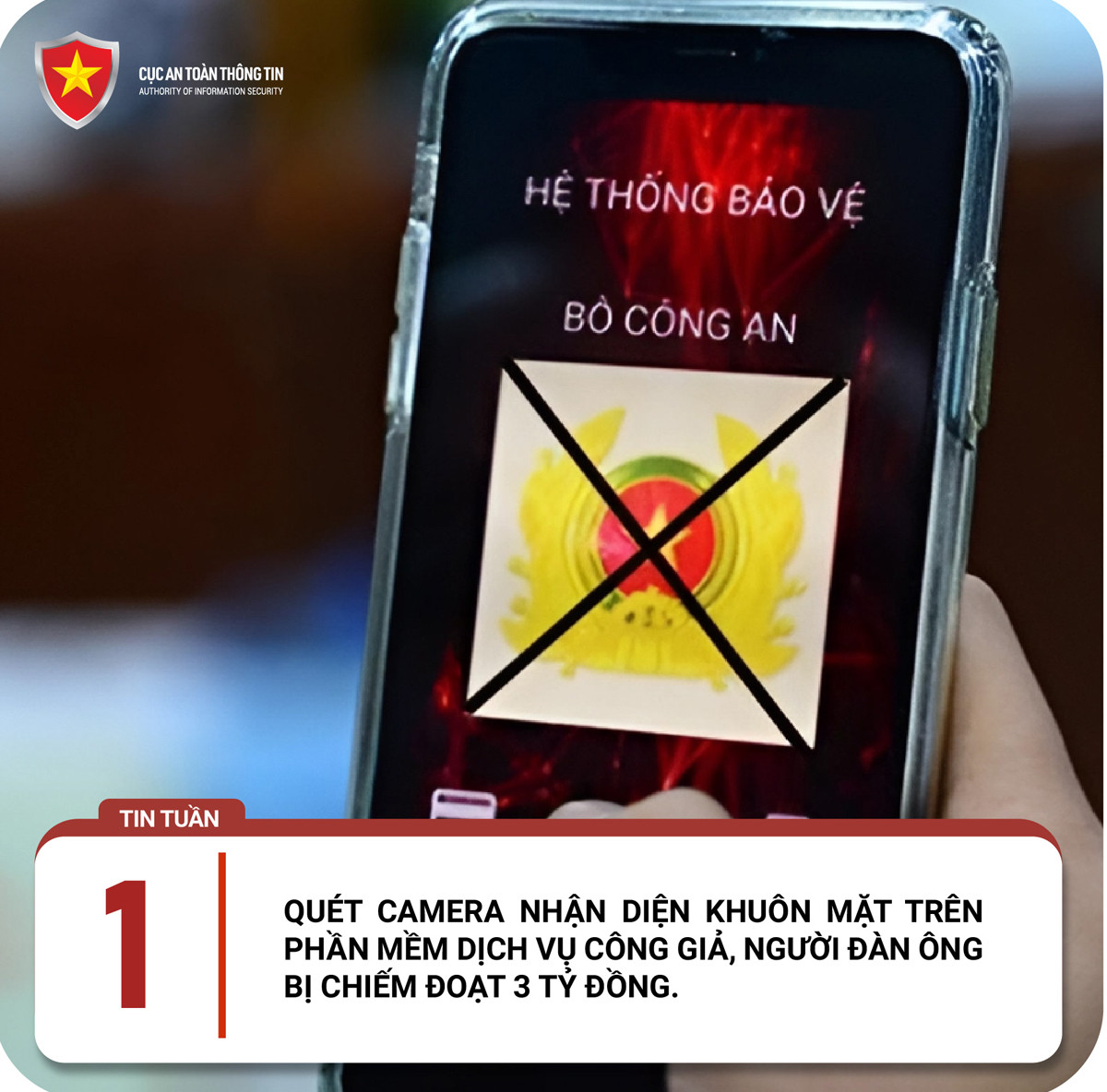
The Information Security Department recommends that people be vigilant when receiving phone calls from strangers claiming to be government officials to notify, request additional information, or provide personal information over the phone.
In particular, people should not install software or applications as requested by the subjects. “Because if fake software is installed, users will be at risk of having their phones taken over, thereby having their information stolen for illegal purposes and appropriating the victim’s property. Messages and calls to the victim’s phone will be controlled by the application, secretly transferred to a server managed by the subject, and will not be displayed on the victim’s phone,” the Information Security Department explained.
'Black credit' crimes rampant near Lunar New Year
The Criminal Police Department (Ministry of Public Security), Da Nang City Police and several localities have just dismantled a loan sharking and property extortion ring with a scale of over 9,000 billion VND. Borrowers live in many provinces and cities across the country, most of whom are workers, laborers, and students who need money urgently and accept high interest rates. This is the result of the peak of the attack on 'black credit' crimes and the attack to suppress crimes, protecting security and order before the Lunar New Year 2024.
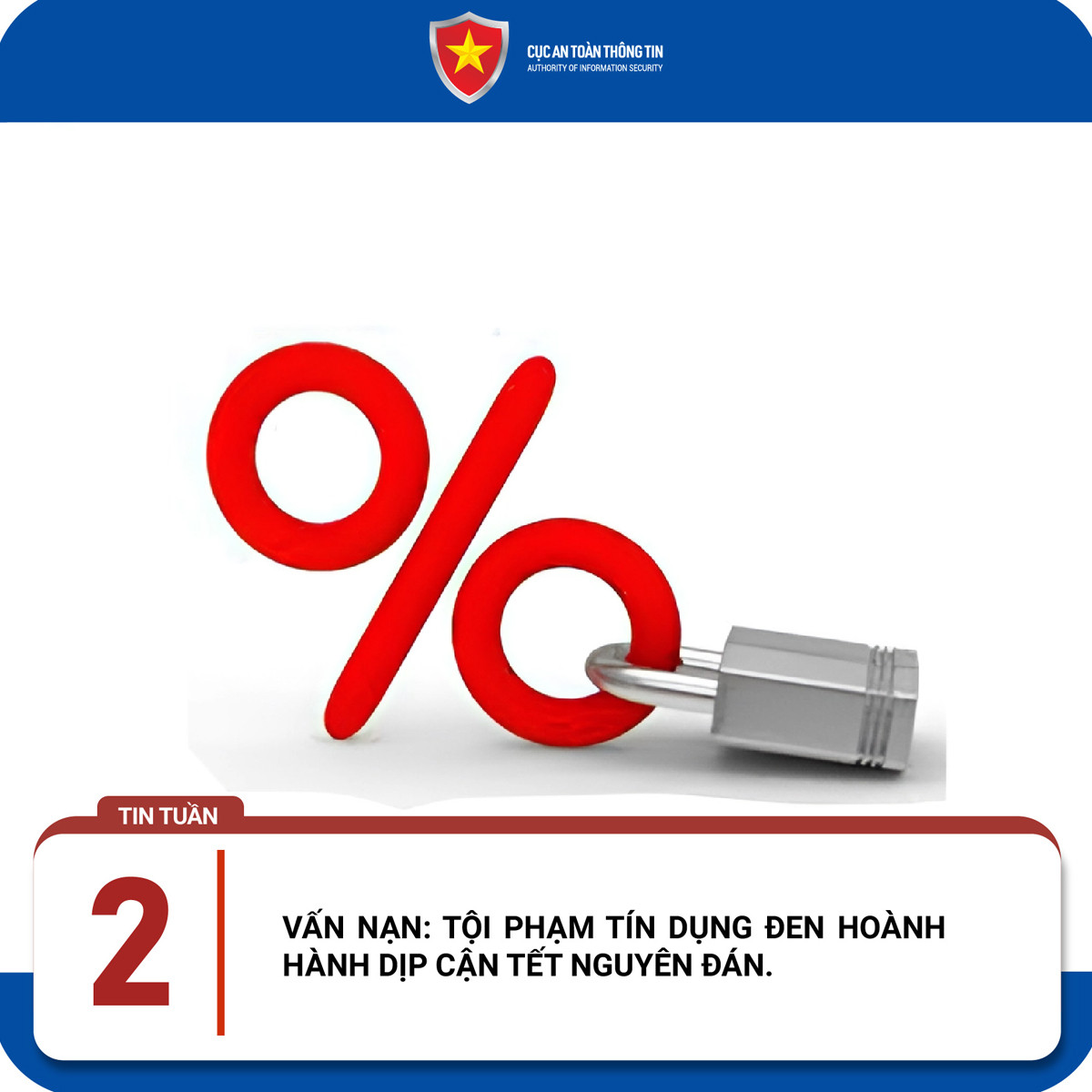
The foreign leader ran a network of nearly 200 people, opened 10 different companies in many fields, and set up 3 loan applications "Oi vay", "Yoloan" and "Vdong" to find victims. The group lent money to more than 1.3 million people at interest rates of 500 - 1,000%/year. When borrowers failed to pay interest on time, not only them but also their relatives and friends in their contacts were terrorized. The entire money flow in the criminal network was carried out through the collection and payment services of a payment intermediary portal in Vietnam.
In the face of the above situation, the Information Security Department recommends that people seek reputable lending institutions such as banks or legal financial companies; absolutely do not provide any personal information or bank accounts on unreliable websites or applications. When installing applications, especially financial applications, people need to consider the requested permissions and carefully read the terms and policies of the application.
Fraud using fake Facebook account of Police Academy
Recently, a fake account of the People's Police Academy - a portal to support victims of online fraud - has appeared on Facebook. Taking advantage of the psychology of those who have been scammed and want to get their money back, bad guys use the image of the People's Police Academy to build trust.
Here, the subjects instruct the victims to pay a fee to support or perform tasks to withdraw money from the system. When someone transfers money, the subjects notify that the bank account has an error and do not allow the withdrawal.
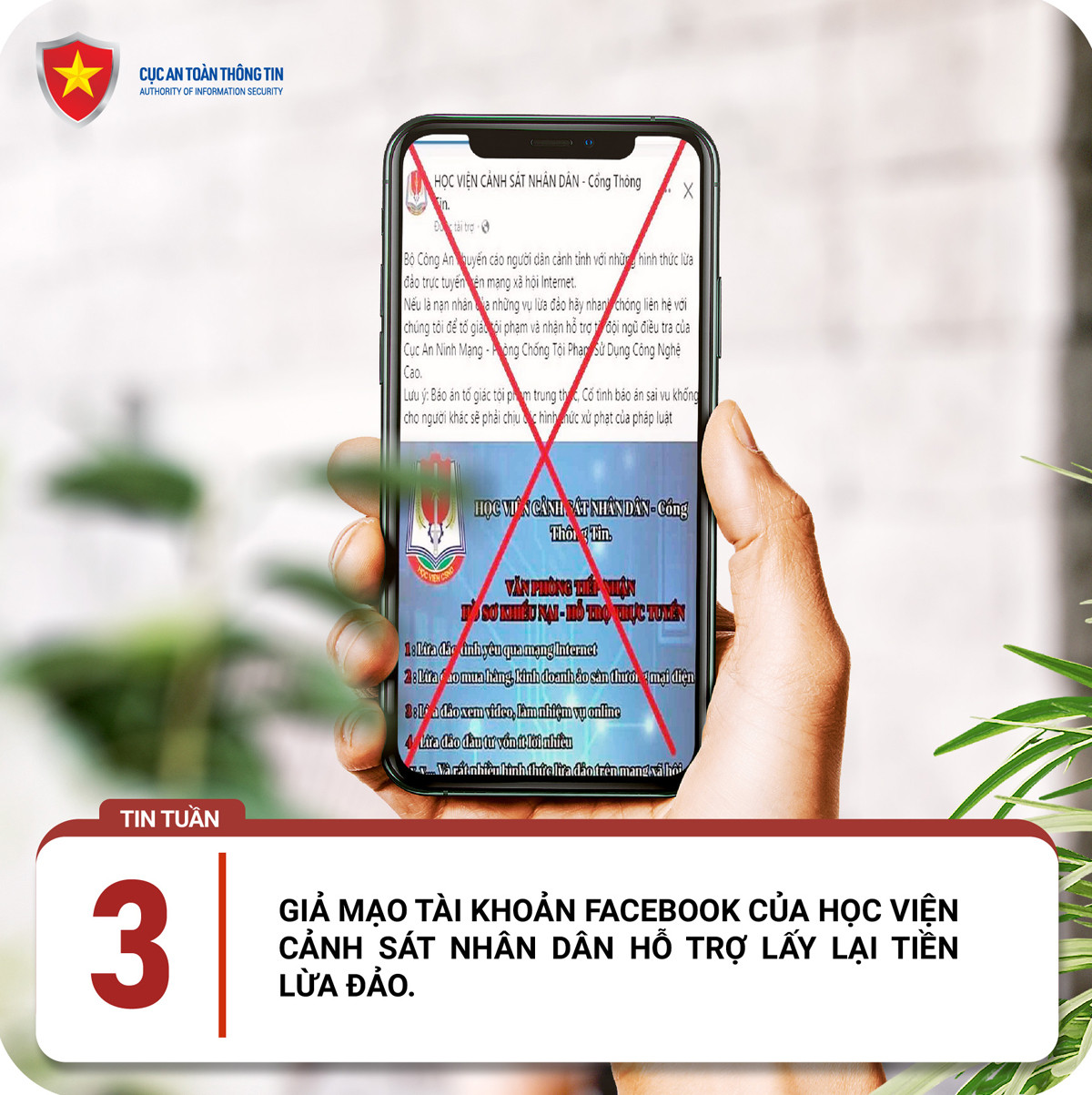
The above scam has been warned many times by the authorities. According to the Information Security Department, the most important thing is that people absolutely do not provide personal information to anyone in any form; information disclosure will lead to many worrying consequences. When receiving strange calls or contacting groups providing services on social networks, people should not transfer money to the subject without researching and verifying their identity.
In case of detecting signs of fraud, people need to report to the police to resolve the case according to regulations; should not look for social networking sites that introduce the possibility of getting back the money that was scammed, to avoid being trapped by fraud.
Hacking Facebook account to steal more than 8 billion VND
At the end of January 2024, a group of 7 people who specialized in hacking social media accounts to defraud and appropriate users' assets were arrested by Quang Binh Police. Starting to operate from the beginning of 2023, this group went online to learn how to illegally take over Facebook accounts of many people nationwide. Then, they changed their passwords, hacked in, and used the stolen Facebook accounts to send messages asking to borrow and appropriate money.
To prepare for the crime, the subjects created about 20 different bank accounts, and at the same time bought many more sets of "junk" bank accounts from subjects online to conceal the receipt of fraudulent money from victims. The total estimated transactions in the bank accounts used by the group of subjects was about 8 billion VND.
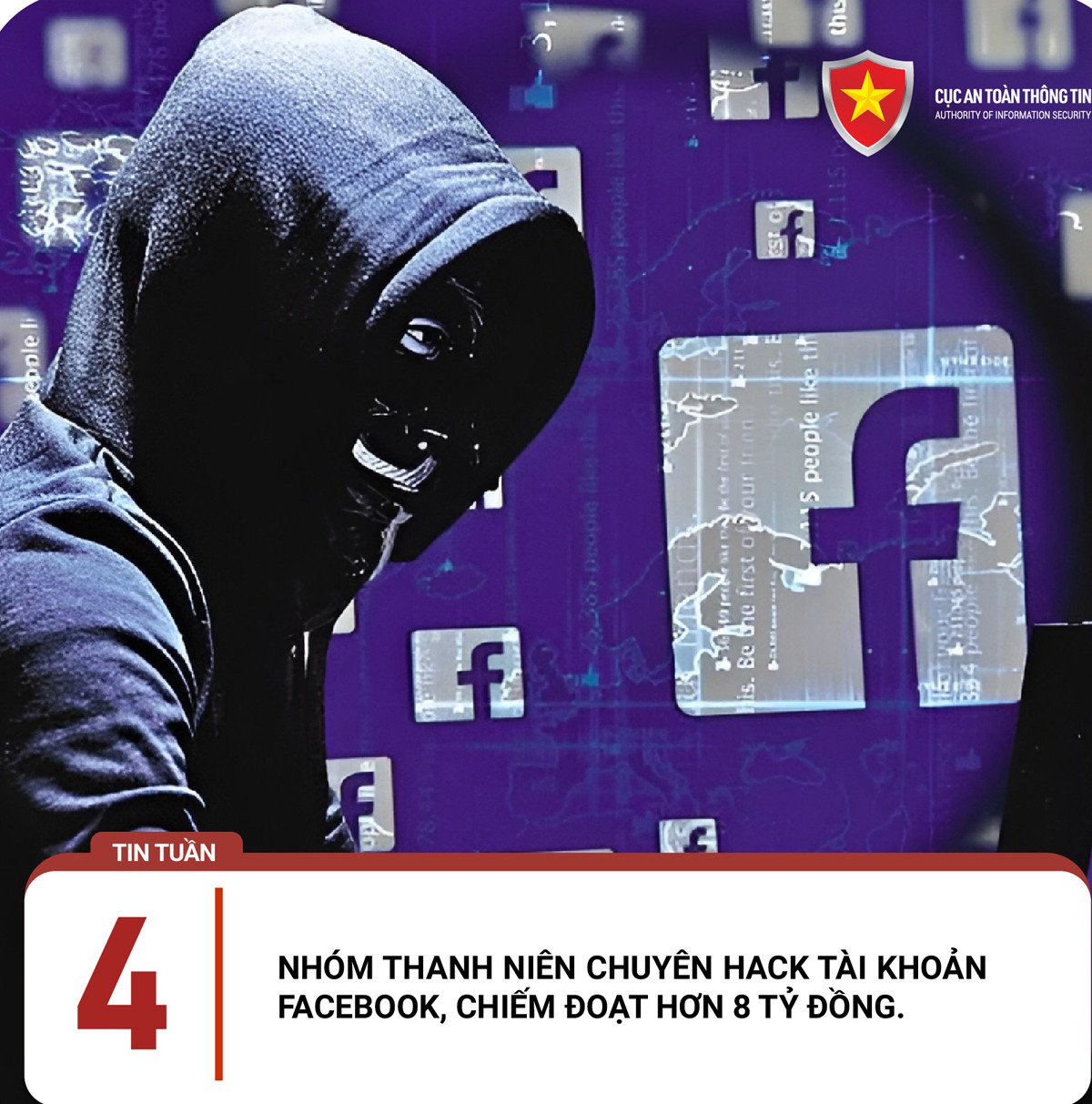
The Information Security Department recommends that, in order to reduce the possibility of being scammed in the above form, people should limit sharing personal information on social networks. At the same time, do not share your Facebook account login information with anyone or any service; be wary of strange messages or emails; do not access strange addresses or links to avoid being infected with malware and having your information leaked.
When accessing websites, users must carefully check the link. Along with that, users also need to use strong passwords, change passwords regularly, do not use the same password for multiple accounts; activate 2-factor verification to increase security and reduce the possibility of being scammed.
Seizing billions of dong with foreign currency exchange scam
Recently, PCL, a suspect residing in Lien Chieu District (Da Nang City), was detained for investigation into the crime of “Fraudulent appropriation of property”. Previously, the Criminal Police Department discovered that Facebook accounts named “Quoc Khang” and “Audrey Truong” showed signs of fraud by exchanging foreign currency for foreign tourists.
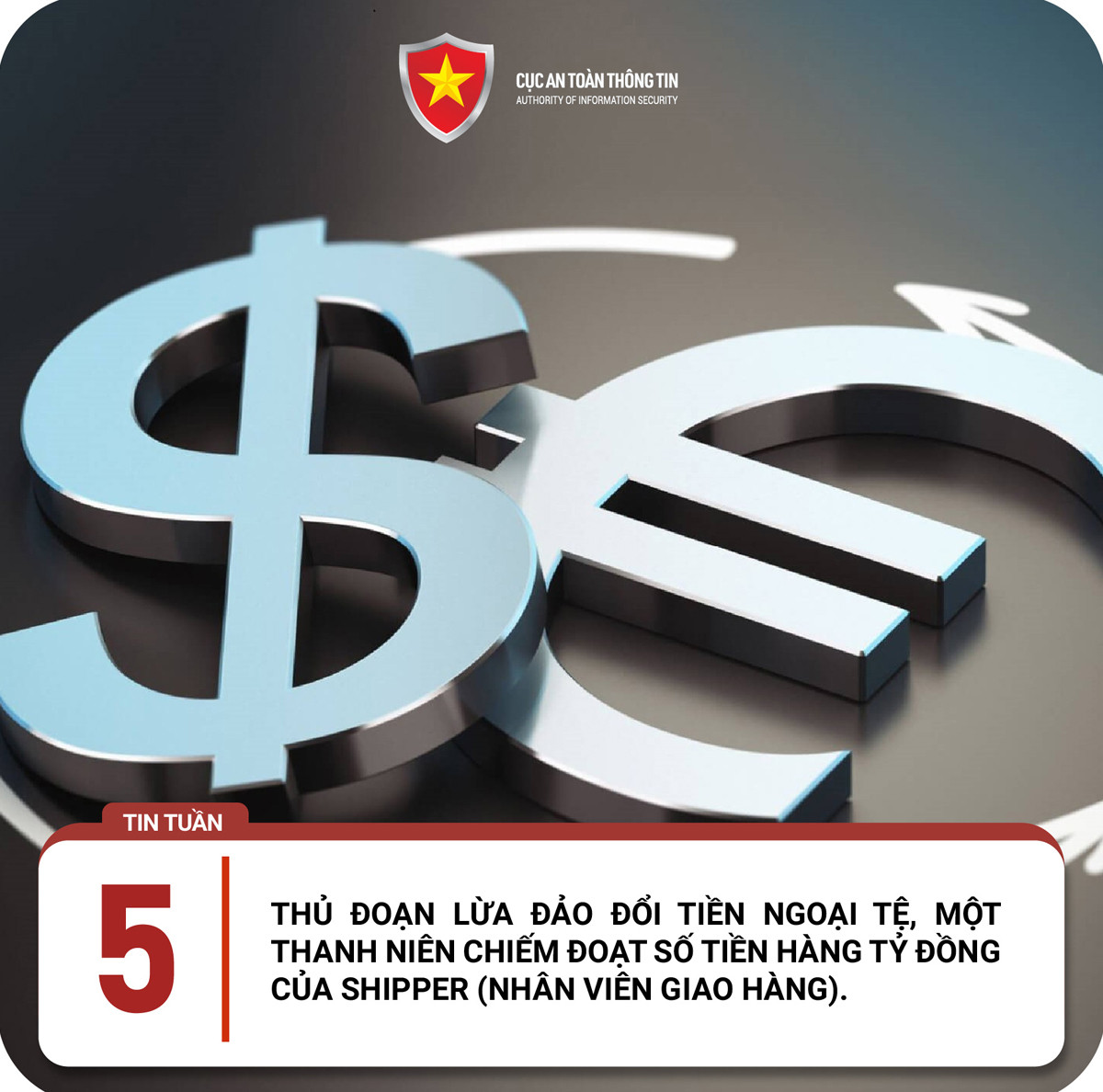
To commit the crime, PCL went online to buy a Telegram account named "Khanh" and used this account to join groups that exchange foreign currency into Vietnamese Dong to find victims. After agreeing on the amount of money to be exchanged with foreigners in need, PCL used the Facebook accounts "Audrey Truong" and "Quoc Khang" to post on the groups "Shipper Da Nang" and other localities for shippers (delivery staff) to transact with tourists.
The fee the subject promised to pay the shipper for each transaction was from 80,000 to 300,000 VND, with the condition that the amount of money to exchange for foreign currency for tourists was advanced by the shipper. When the shipper brought Vietnamese currency to deliver to the tourist, the PCL subject asked the tourist to transfer the money via a bank account. After the transaction was successful, the subject cut off contact and did not transfer the money back to the shipper.
Note about the above form of fraud, the Information Security Department recommends that when people need to exchange money, they should go to reputable banks and financial companies, absolutely do not exchange money through intermediaries to avoid being scammed.
Source








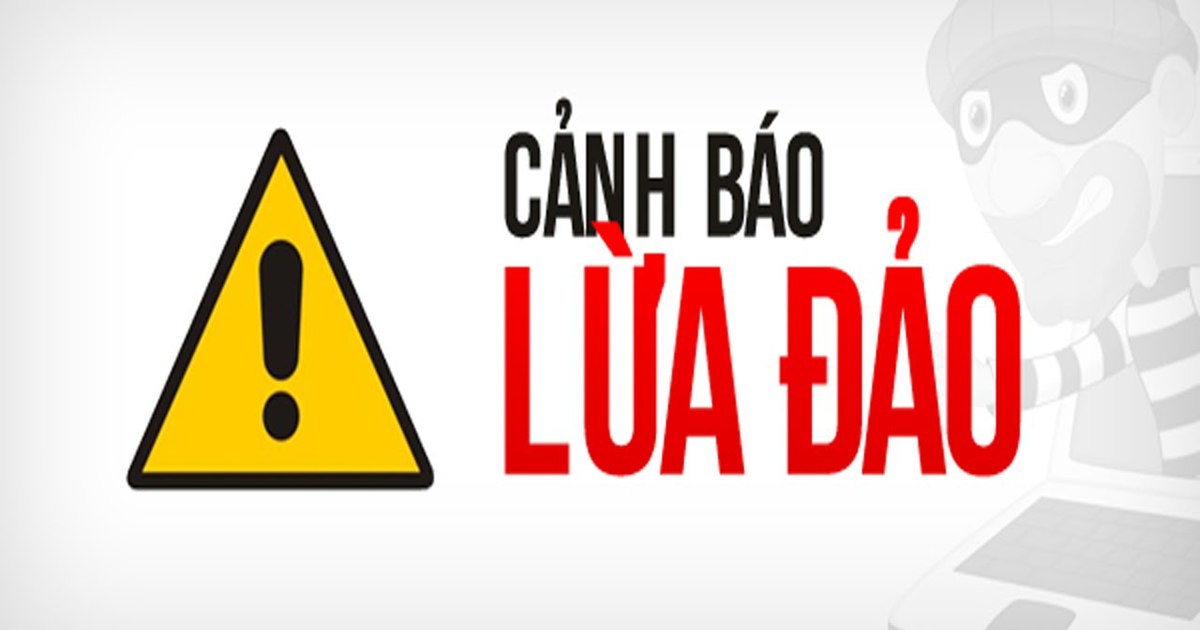

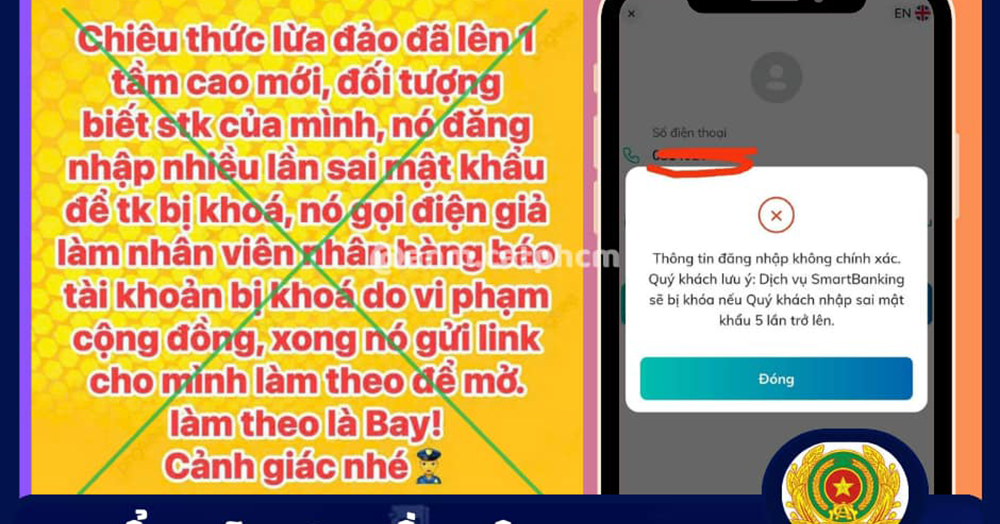







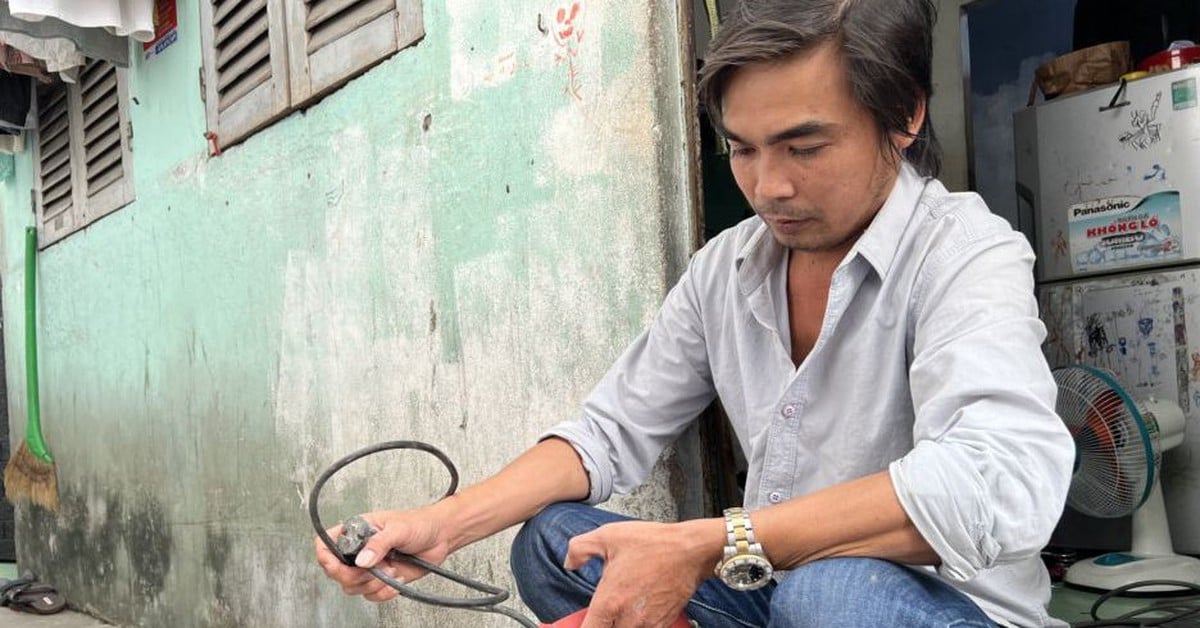




















![[Photo] Prime Minister Pham Minh Chinh chairs Government Conference with localities on economic growth](https://vstatic.vietnam.vn/vietnam/resource/IMAGE/2025/2/21/f34583484f2643a2a2b72168a0d64baa)



















































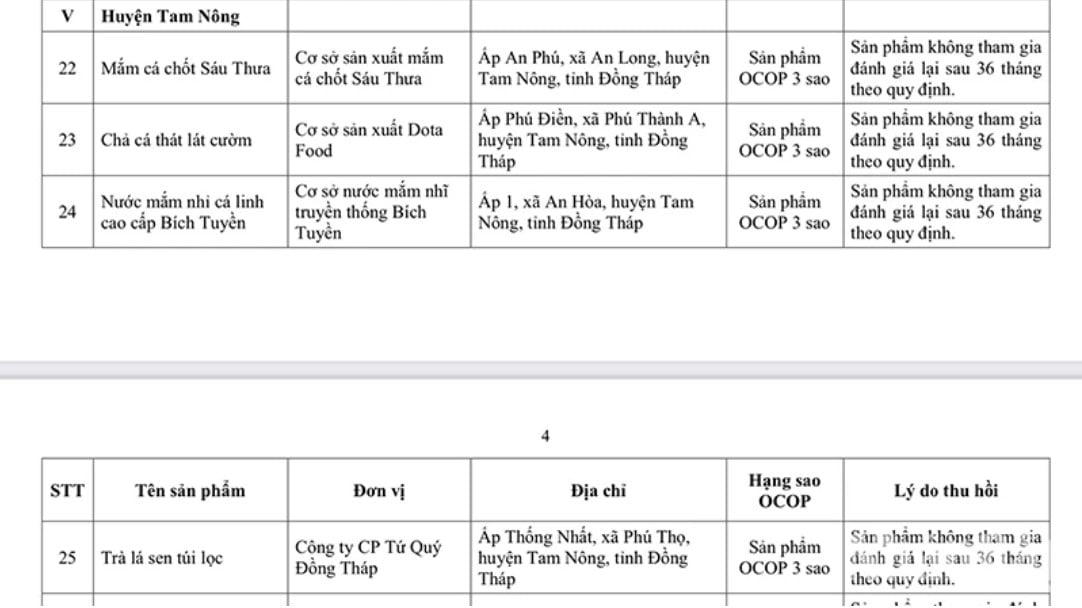




Comment (0)